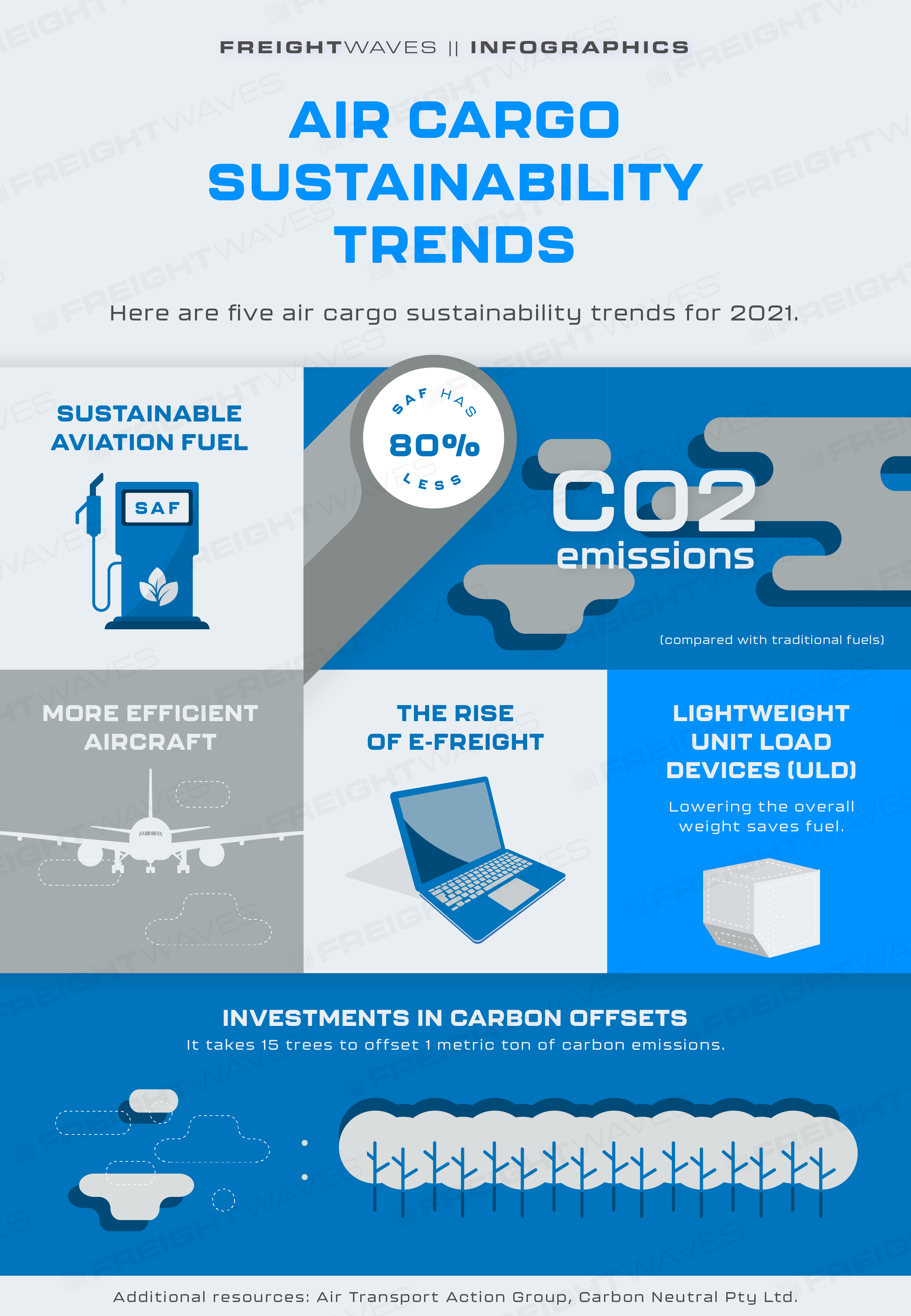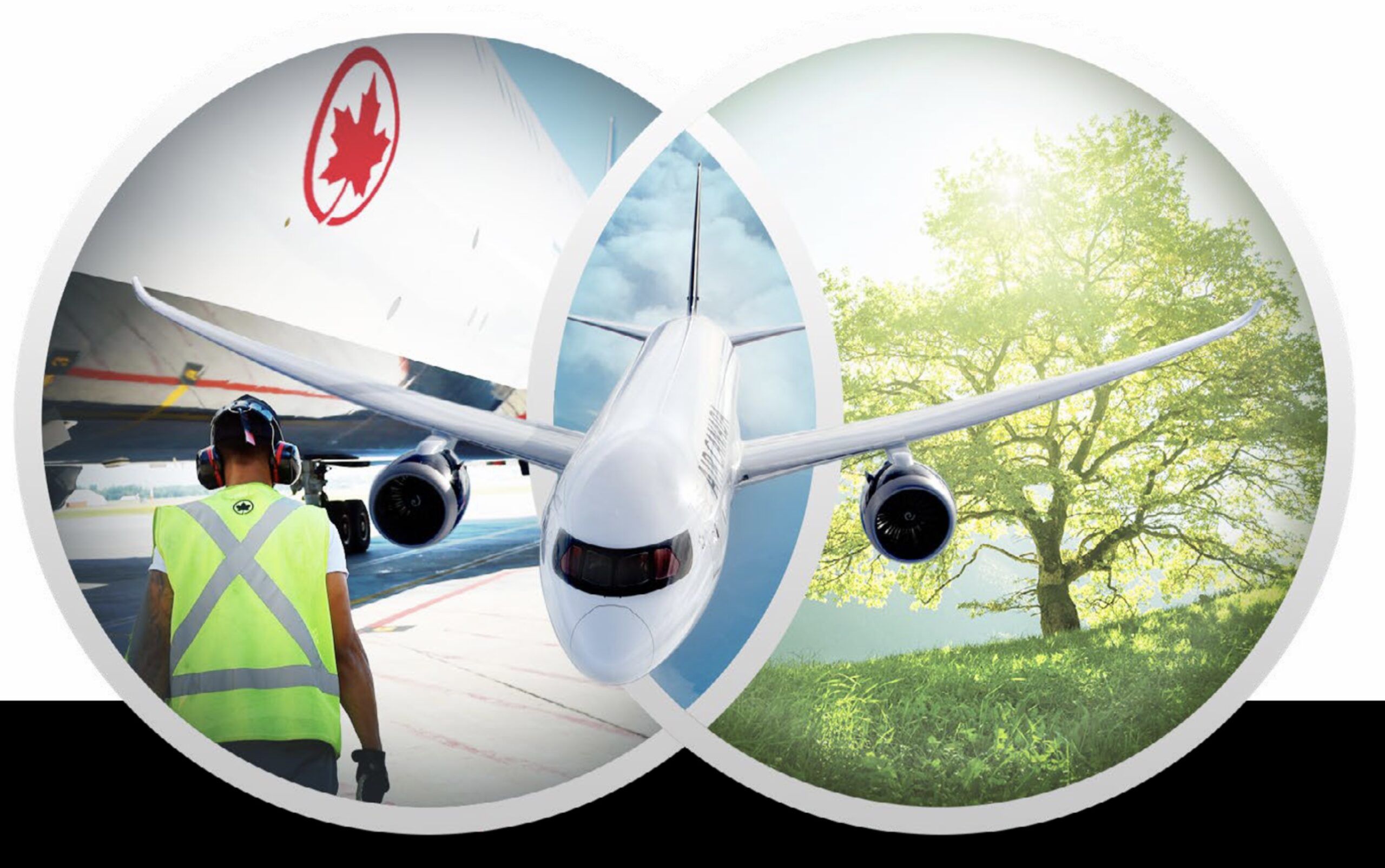This article will introduce to you 5 air cargo sustainability trends in 2021
The International Air Transport Association’s (IATA) “Ode to Air Freight” captures the importance of air cargo perfectly. According to the International Air Transport Association (IATA), an estimated 7.4 billion parcels are flown each year, saving about 2.5 million lives.
Air transportation accounts for 2% of worldwide carbon emissions. As government regulations change and public support for combating climate change grows, aviation companies are exploring innovative ways to mitigate the negative environmental effects of air freight. Here are some of the ways airlines and freight businesses are attempting to reduce carbon emissions.

Sustainable aviation fuel (SAF)
It is the first trend of air cargo sustainability trends in 2021.
Feedstocks, agricultural leftovers, algae, waste oils, and even carbon can be used to make SAFs. Norsk E-fuel is an innovative SAF that absorbs and processes carbon.
SAF has been accessible in various forms in modest quantities in the past, but it is gaining popularity. According to the Air Transport Action Group (ATAG), SAF can emit up to 80% less GHG throughout the course of its life cycle than traditional fuels. SAF, according to ATAG, reduces sulfur and particulate matter emissions, leading to cleaner air. It all depends on what the SAF is composed of and how much conventional fuel is blended with it.
Neste announced earlier this year that it has successfully distributed its first load of SAF through a pipeline to the San Francisco International Airport (SFO). Amazon intends to use SAF to power some of its freight planes.
E-Ascension freight’s
Despite the fact that it has been around for a while, e-freight is still gaining popularity in air shipments. When a plane carrying goods lands, e-freight digitizes all of the paperwork required. E-freight makes becoming paperless as simple and painless as possible, from shipping data to customs procedures. According to a Swiss WorldCargo “Cargo Matters” report, the benefits are substantial.

Carbon offsets investments
What exactly is a carbon offset? Simply explained, it’s an investment in a technology that removes carbon dioxide from the environment to offset emissions from another source. Tree planting is one of the most popular carbon offset investments. A particular quantity of carbon is predicted to be sequestered depending on the location, climate, and type of tree. Generally, it takes about 15 trees to offset 1 tonne of carbon.
Carbon Offsetting and Reduction Scheme for International Aviation (CORSIA) is a non-profit organization that tracks the emissions of different SAFs during their entire life cycles to ensure that carbon offsets are not recorded twice. There are other rules governing what constitutes an offset.
Many businesses are establishing lofty environmental goals that must be met in record time. Carbon offsets can assist the air freight business in bridging the gap as it develops and implements innovative strategies to improve the efficiency and long-term viability of direct operations.
Lightweight unit load devices (ULD)
Lightweight pallets and containers for consolidated carrying of loose cargo are now available from ULD manufacturers. The lighter weight saves fuel.
If weight was the limiting constraint, lighter ULDs might allow more parcels to be shipped at once. While this would not reduce fuel consumption for that flight, it would boost efficiency because more cargo could be transported per plane.
More efficient aircraft
To reduce emissions, flying cargo operators such as FedEx and UPS are investing in more efficient planes. As they seek to get products to customers’ doors fast, they are considering design, weight, and fuel efficiency to reduce environmental concerns.
This year, Delta pledged a $1 billion investment in more fuel-efficient jets and carbon offsets. FedEx is attempting to improve fuel efficiency by retrofitting and replacing aircraft. Shipping firms strive for the best speed, weight, and flight patterns in order to save money and reduce carbon dioxide emissions.
Source: www.freightwaves.com
——————————————————————————————–
Contact us for more information:
Head Office: 01. Hoang Ngoc Phach, Dong Da District , Hanoi city
Email: contact@worldcourier.vn
Facebook: https://www.facebook.com/worldcouriervietnam
Website: https://worldcourier.vn/en/
